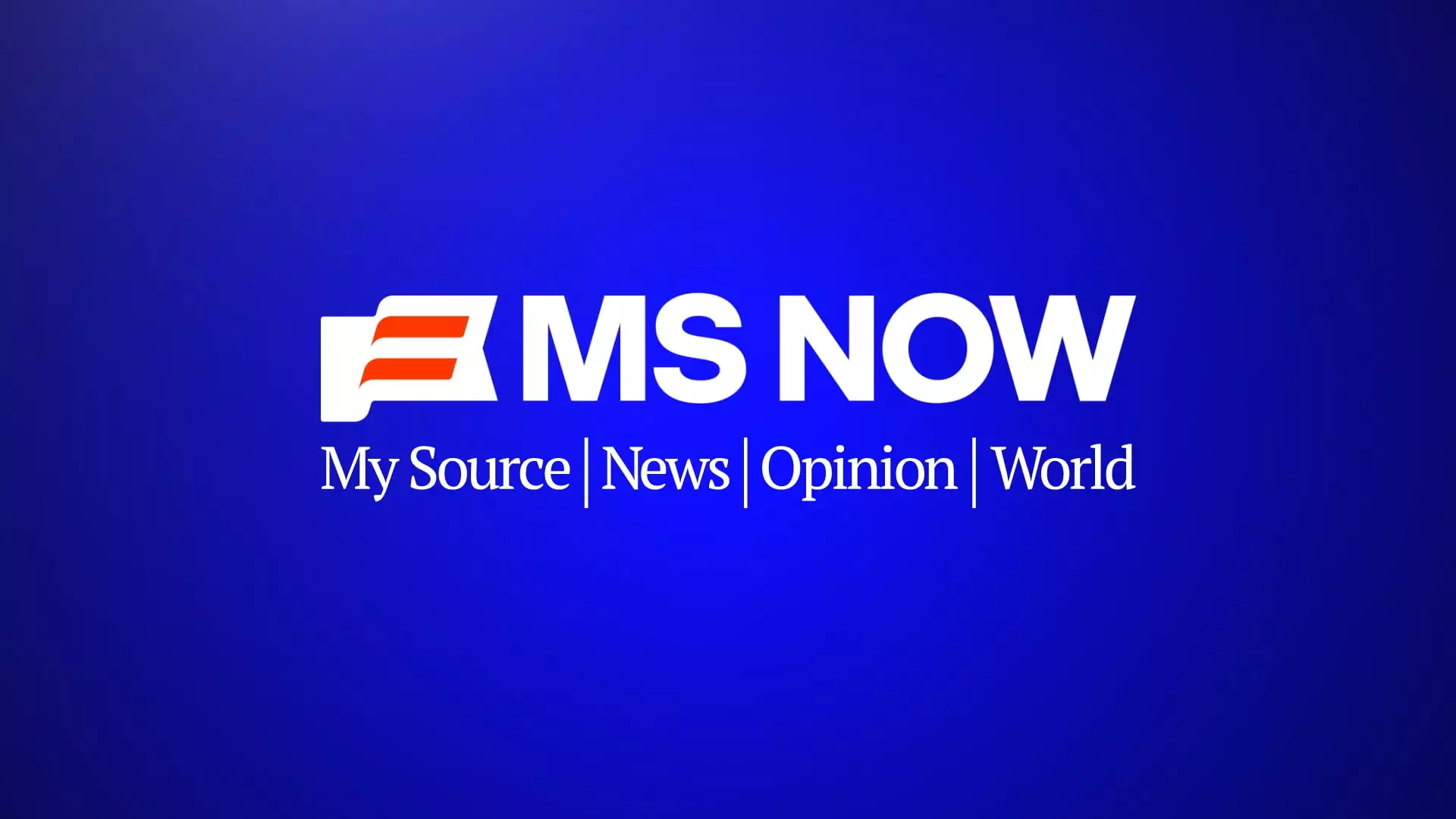In a surprising turn of events, MSNBC is set to undergo a comprehensive rebranding, shedding its iconic peacock logo and adopting a new identity—My Source News Opinion World, or MS Now. At first glance, this looks like a bold strategic move aimed at establishing independence from NBCUniversal, but a closer examination reveals underlying uncertainties and arguably a sense of insecurity. The decision comes amidst a period of significant transition, signaling that MSNBC and its parent company, Versant, are attempting to reinvent themselves in a competitive industry that has become increasingly saturated with ideologically diverse news sources. Yet, one wonders: is this rebranding a confident step toward autonomy, or an indication of internal struggles and shifting priorities?
First, the change is framed as a bid for distinction—a desire to carve out a new niche separate from NBC News. But, fundamentally, it seems to mask a deeper concern: maintaining relevance amid evolving viewer preferences and burgeoning competition. MSNBC, once the darling of center-left audiences, is navigating a complex landscape where its traditional brand identity might be perceived as too tied to its parent, NBCUniversal, especially as consumer preferences lean toward more modern, independent media outlets that are perceived as more authentic or less corporate.
The mere fact that Versant is spending considerable resources to craft an entirely new identity—hiring 100 new journalists, establishing a new D.C. bureau, and preparing a nationwide marketing campaign—speaks volumes about the urgency and perhaps insecurity behind this move. Is this a confident leap toward independence or an attempt to mask vulnerabilities withFlashy rebranding and fresh logos? It’s hard to shake the suspicion that the latter is at play.
The Ideological Implications and Audience Perception
The internal messaging emphasizes that the network’s core mission and commitment will not change—yet that very promise rings hollow without a clear articulation of how this new branding will align with viewer expectations. MSNBC has cultivated a particular brand identity over three decades—it’s been a powerhouse for progressive-minded viewers, often criticized by center-right audiences as biased. The new name and logo change appear to be an attempt to reframe its image, potentially appealing to moderates or conservative-leaning viewers who might have otherwise dismissed the network’s prior branding as too partisan.
This strategic pivot raises critical questions about the media landscape’s future. If MSNBC aims to broaden its appeal, it must carefully navigate the fine line between retaining its core audience and venturing into a more centrist or neutral territory. Whether the new branding will succeed in doing so remains uncertain. Meanwhile, the move might also alienate loyal viewers who feel that rebranding dilutes the network’s identity or signals that it is trying to escape past perceptions.
It’s essential to recognize that MSNBC’s rebranding isn’t occurring in a vacuum. The media industry is increasingly fragmented, polarized, and scrutinized. This transition could either be a masterstroke to reinvent itself or a reflexive attempt to stave off declining ratings and political irrelevance. Given that MSNBC remains the second-most-watched cable news outlet, the pressure to refresh its image is understandable but fraught with risk. Will the move attract new viewers or merely confuse existing ones?
The Broader Industry and Future Outlook
Versant’s decision to rebrand all associated properties, from sports channels to digital brands, indicates a broader corporate strategy: distancing itself from a traditional, possibly outdated, corporate identity associated with the NBCUniversal peacock. This signifies a recognition that media consumers today prioritize authenticity, independence, and clarity of purpose—traits that a corporate logo and name alone cannot convey.
However, the ambitious plan to turn Versant into a publicly traded entity by year’s end signals a shift toward a more aggressive, market-focused approach. The new branding—particularly for MSNBC—must deliver results: higher ratings, broader appeal, and a robust journalistic identity that commands respect beyond politically motivated audiences. If it fails to achieve these goals, the entire exercise risks being labeled as superficial window dressing for internal insecurities.
In my view, this isn’t merely about rebranding for the sake of modernity; it reflects a fundamental tension in the media world—balancing independence with profitability, ideology with audience appeal, and tradition with innovation. MSNBC’s move is ambitious but also precarious. Its success hinges on whether viewers perceive this change as a genuine evolution or just a superficial veneer designed to mask underlying doubts.
While the industry will continue to evolve, the key question remains: can MSNBC redefine itself as a credible, balanced voice without abandoning its core principles? Or will this rebrand simply serve as a transactional update that fails to address the deeper cultural and political currents shaping modern news consumption? Only time will tell, but history suggests that branding alone cannot resolve the complex challenge of maintaining relevance in today’s fractured media landscape.

